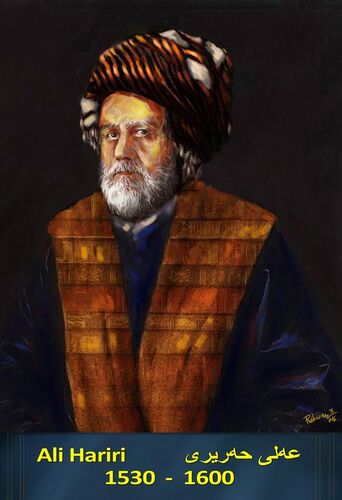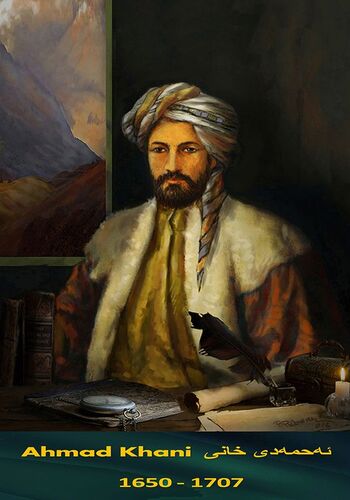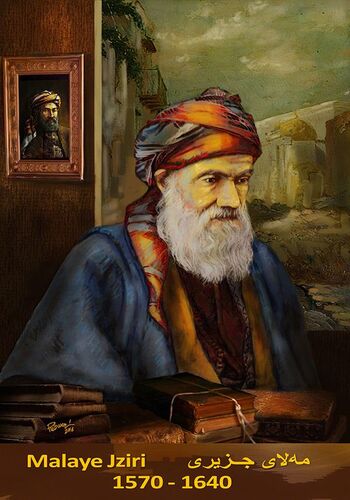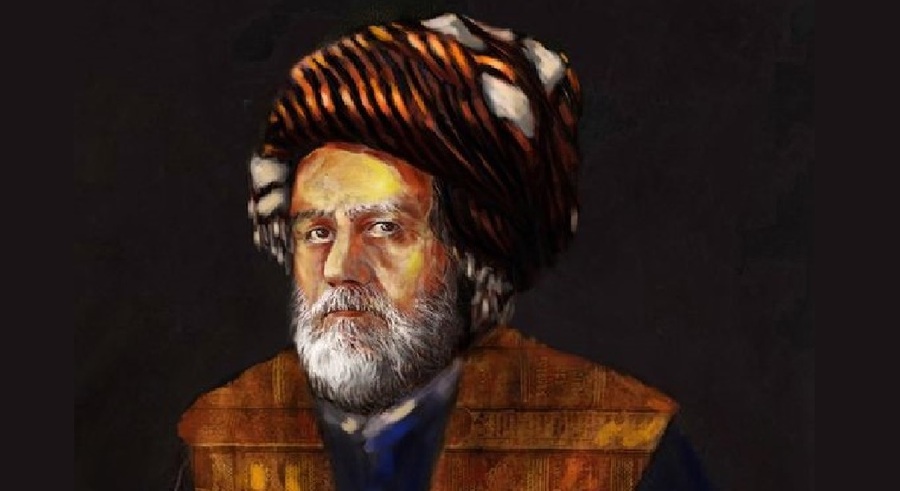In the literature history of the world, there are many names that not only because of their writing's values but also due to the period of time they had lived in, have been famous more than their works and they have become a stylist writer or thinker.
Such a person in Persian literature who can be mentioned here is "Abu Hafzi Soghdi" who lived in 300 Hijri and there is only one verse left of his work. This verse is:
The way a wild Gazelle runs in the plains
How can a man who does not have a lover, live
This simple and straightforward verse has made many Persian poem researchers think that it is the beginning of diversity. The diversity from a tradition of writing among the Persians and introducing a new discourse. Until then, most of the written texts had been written in Arabic in Iran. Abu Hafzi Soghdi made this only verse as a starting point for Persian to be used in poetry and also made his name last forever in the history of Persian literature. Thus, the importance of Abu Hafzi Soghdi's work is not just its literary techniques or content, but rather it is a gate to a new beginning for the Persian language. This is why, "Mohammad Reza Shafi'i Kadkani", the well-known Persian researcher, has written a book called "The Second Millennium of the Wild Gazelle" to explain this unique verse, and according to him, the Persian language stepped into its second millennium after this verse.
In Kurdish literature, there are also some figures whose importance is not only due to their works' values or their way of thinking or applying literary techniques but rather because they were the first who began a path for their descendants as a writing and thinking tradition.

They have crossed the way that was taken by the Kurdish writers for thousands of years before them. There were hundreds or even thousands of Kurdish thinkers, writers, philosophers, and religious experts who had served thinking fields but they had expressed their human, historical, religious, and literary thoughts in Persian or Arabic. We can mention many names such as "Abu Hanifa Dinawari", "Taj Aldin Shinoyi", "Ibn Khalkan" and among the more recent figures "Jamil Sidghi Zahawi", and "Ahmad Showqi" and many other names.
However, a name that perhaps most of us have heard but have never considered him is "Ali Hariri". This well-known writer and poet, and although we do not have the exact date of his life period, there is evidence that at least proves he had lived hundreds of years ago. The first evidence is that the great Kurdish poet, "Ahmad Khani" who wrote his "Mam and Zin" book more than four hundred years ago in Kurdish has mentioned Ali Hariri's name:
I could have revived Mala Jaziri
And Ali Hariri's soul with my work

This verse shows that Ali Hariri had written in Kurdish so well that a great poet like Ahmad Khani thinks that by writing a book like Mam and Zin he is reviving Ali Hariri's soul who was a very significant figure.
"Amin Zaki Bag" wrote in his book "The History of Kurds and Kurdistan" that "Ali Hariri was from Dir Al Harir near Erbil and he died in 400 to 470 Hijri in other words he had lived in 1010 to 1077 BC. and he was contemporary to "Ferdousi Tousi".
However, there are other opinions that claim that Ali Hariri must have lived in later periods of time. One of those who mention such claims is "Haji Qader Koyi". His proof is a Persian poet "Abdul Rahman Jami" verse. According to Haji Qader Koyi, Jami had written a verse as follows:
I have seen an old man from Jazir
I have seen a great man from Harir

Perhaps these two men he is talking about are "Malay Jaziri" and "Ali Hariri". So, based on this, Ali Hariri must have lived around 850 Hijri.
There are other various opinions on the date of Ali Hariri's birth and life. We do not mention them here. However, all the scripts have mentioned that he was the first poet who wrote poems and prose in the Kurmanji dialect of the Kurdish language. For instance, "Alexander Jaba" wrote: Ali Hariri was the first Kurdish poet who had written a Kurdish diwan and texts. No matter which one of these two opinions is true, however, there is no doubt that he was the first man who wrote poems in the Kurmanji dialect of Kurdish because Ahmad Khani has mentioned Ali Hariri's name in his book as his own fugleman. And as he had written, when he had finished Mam and Zin, Ali Hariri was not alive and he had tried to revive his soul by writing this book. All these claims and pieces of evidence prove that Ali Hariri had lived a long time before Khani or at least he had lived four hundred years ago.









